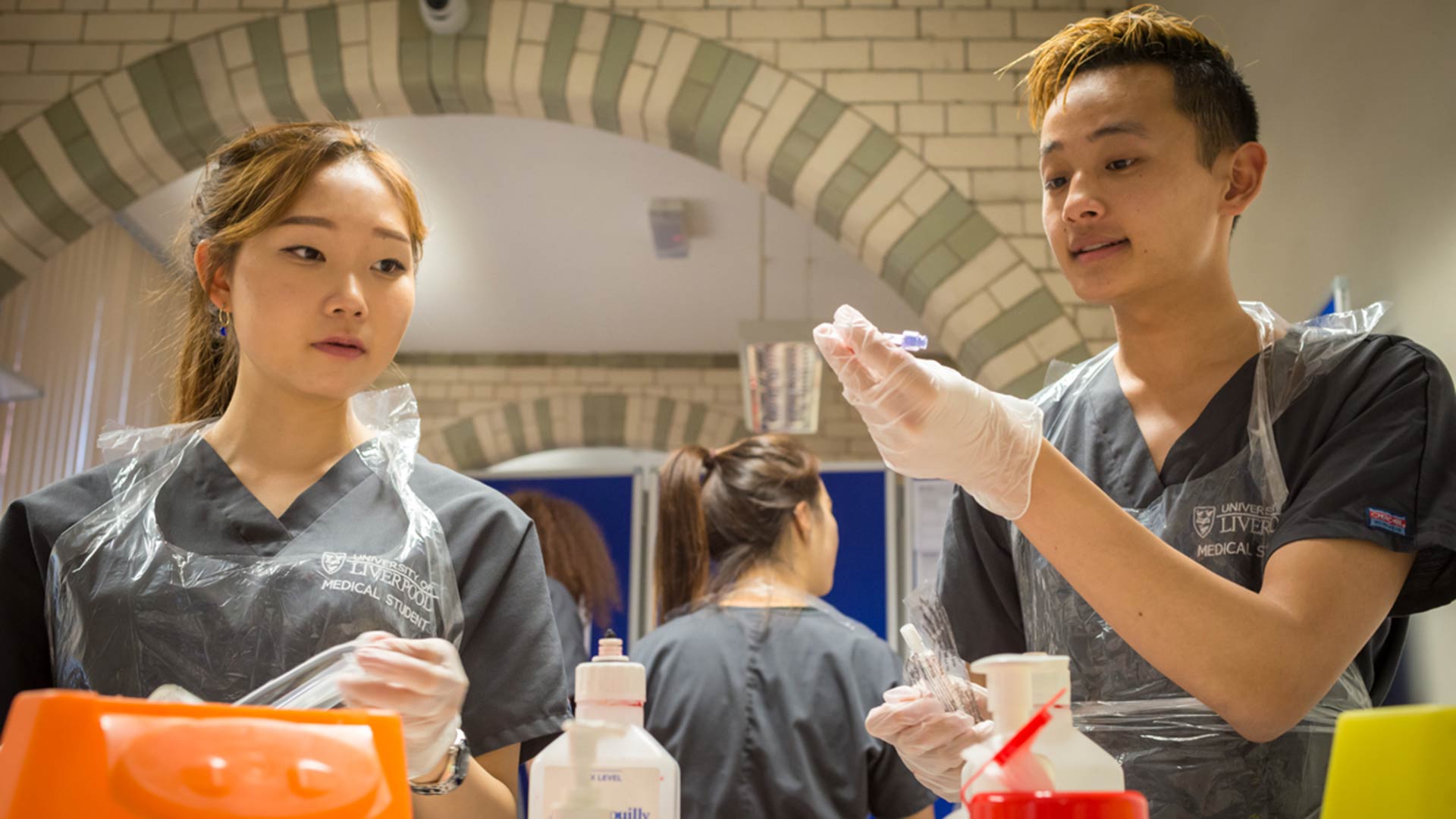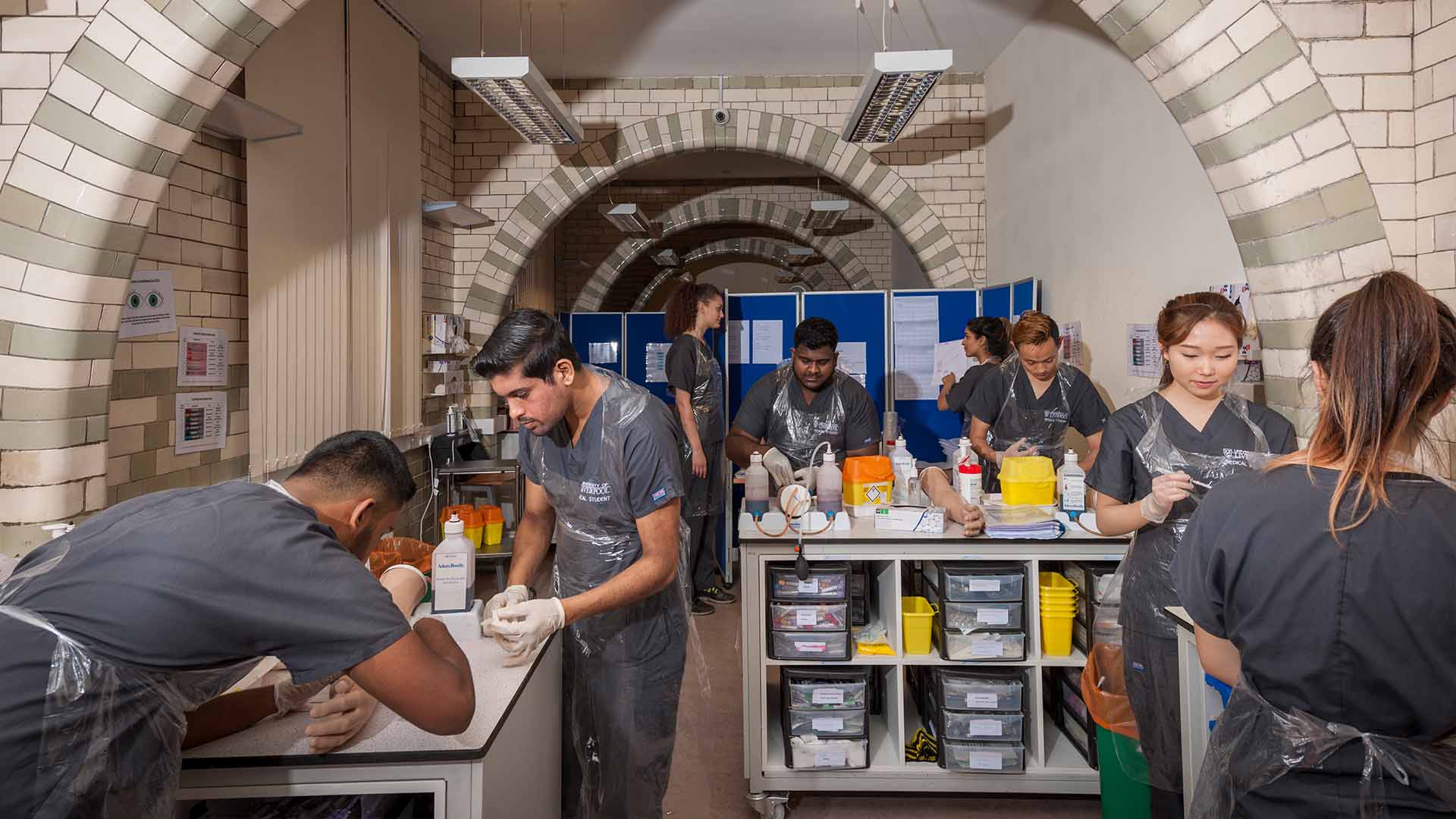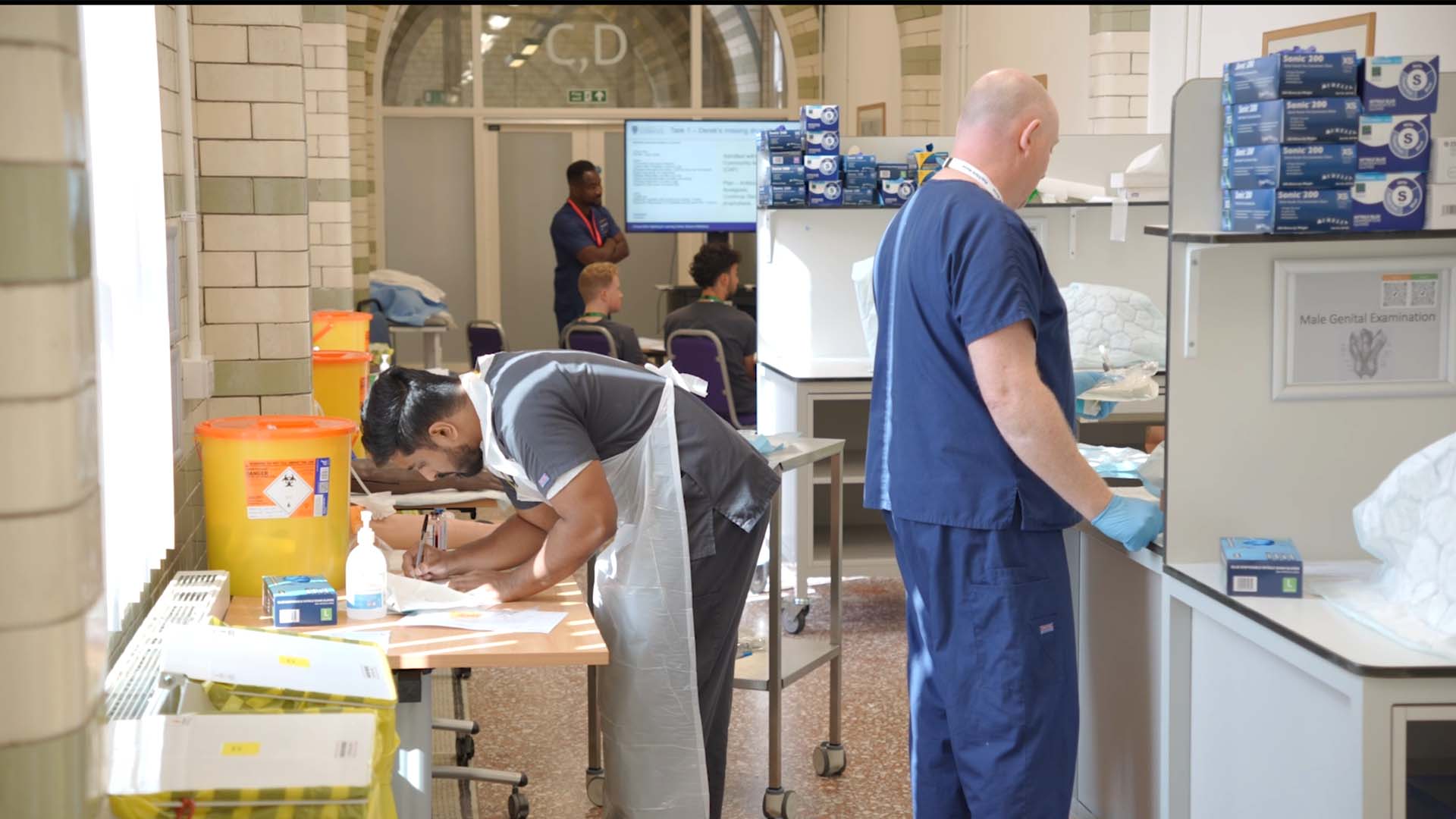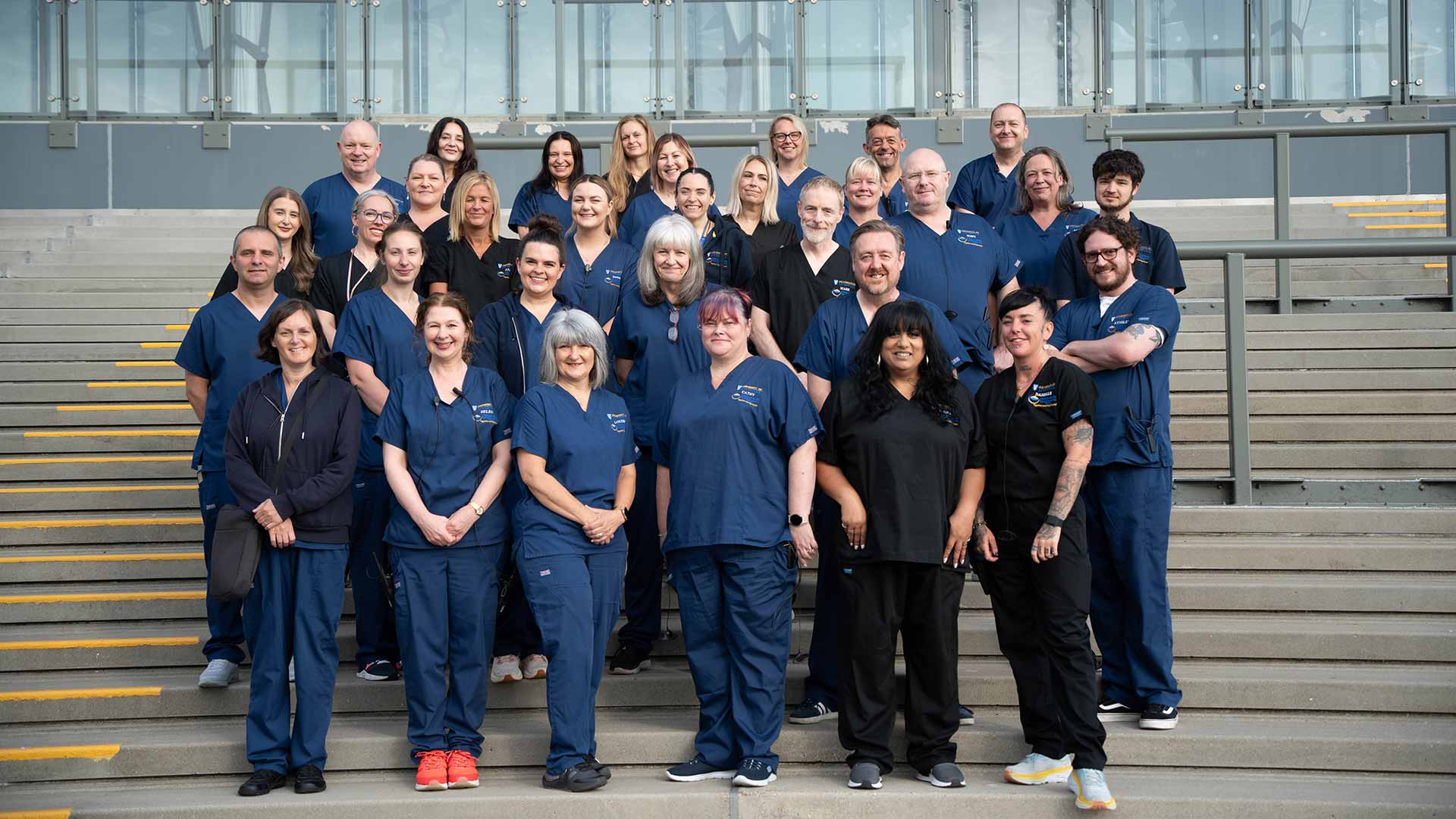
With clinical assessments just around the corner, we caught up with Clinical Skills Lecturer Kat Chadwick to get the team’s top tips on preparing for success. Check out the facilities and resources supporting you in this, and the people behind the scenes putting them together.
In part 1 of this clinical assessment series, the first piece of advice to approaching your exam with confidence was... Practice, practice, practice! Luckily, there are dedicated spaces on campus for you to do just that.
What learning spaces are available to me on campus?
There are two dedicated independent clinical learning areas in the Waterhouse building - the Learning Zone and Learning Ward (exclusively for student doctors in years 4 and 5).
What makes these learning areas special?
These independent learning areas are filled with a variety of equipment to help you practice invasive and non-invasive skills in a safe environment. They also have dedicated spaces to practice system examinations on each other.
Did you know we were one of the first medical schools to have this kind of facility in place?
The areas have extended opening hours, until 8pm Monday to Friday, to give you more opportunities to practice, and they are open access, so no need to book in advance.
How should I be approaching these learning areas?
These are clinical environments so it goes without saying that you should wear scrubs and maintain good hand hygiene etc. just as you would on placement. Remember to be respectful of the area that you are using and leave it in a state that you would wish to find it. Be sharps safe! If you use a sharp, make sure to dispose of it correctly to avoid causing an injury to someone.
Remember this is a safe space for you to practice a skill in. Feel free to talk to the models just like you would a real person. This will help you when you are in clinical practice.
Both areas get very busy during the run up to both AFLs and AFPs, so you may want to plan your visit during quieter times. You may have to wait for a particular piece of equipment to become available, why not ask the person who is practicing if you could practice together?
Don't forget to access all of the helpful teaching resources on Canvas to support you, whether you are practicing on your own or with friends. There are QR codes for each subject, in the Learning Zone and Ward, that will take you directly to the correct areas of Canvas to access these resources.
I’m already getting a lot of clinical experience on placement, should I still utilise the learning zone?
The Learning Zone and Ward are great places to practice; however, they are there to support your clinical practice, not to replace clinical practice opportunities. Get as much clinical exposure and practice as you can and use the alternative areas for any skill you may feel less confident in.
We know going into clinical practice for the first time can be quite nerve wracking, so why not get a group of friends together and head to the Learning Zone? This is a great opportunity to work together to build your confidence in all of the skills you have learnt over the past few years, before you head to your first placement.
Similarly, if you are in your first couple of years on the course, the Learning Zone is a great opportunity for you to practice the skills you have been learning in your taught sessions as you look ahead to your time on placement in the upcoming years.
How are these clinical learning areas managed?
Have you met our amazing Tech team? You might have seen them in the Learning Zone or Learning Ward, checking them and re-stocking them to ensure you can all practice safely and effectively. Did you know that they are also responsible for setting up and taking down the teaching rooms, and also support simulation sessions and Clinical Assessments, which take months to prepare for, to name just a few things that they do within the department. Say hello when you see them next around the Waterhouse building!
What other resources are there to support my preparation?
Don’t forget that there are lots of additional resources to help you prepare for clinical practice and assessment. The Clinical Assessment Handbook really goes into year-specific detail on what you can expect, and there are a number of additional study guides - the Hand & Nails study guide, the Oxygenation study guide, to name but a few – to support your clinical practice. Have a look at the magic board outside of the Learning Zone for more information.
If you have a question that you can’t find the answer to, post it on the Clinical Skills Q&A Forum discussion boards on Canvas, we check them regularly (except for exam days of course!)
Remember the Clinical Skills team are here to help and support you. You will see us around the department, feel free to say hello, and if you have a question, just ask us. We will also see you at the Clinical Assessment at Aintree, we will be there rooting for you!
 Good luck from all of us in the Clinical Skills Team!
Good luck from all of us in the Clinical Skills Team!